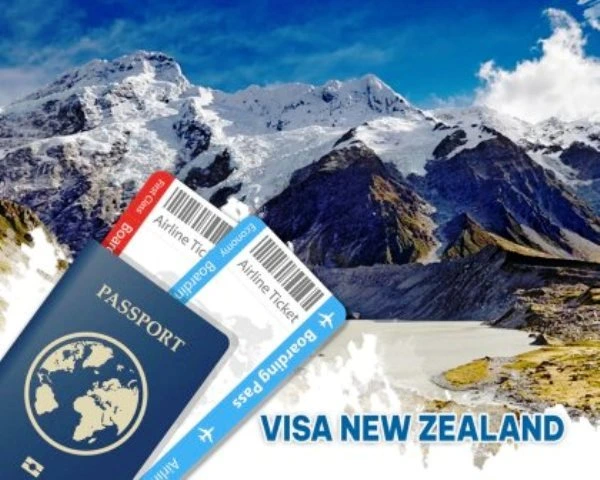Discover how New Zealand’s 2025 visa reforms will benefit Indian job seekers and migrants. Learn about the changes to work experience requirements, visa durations, and more.
New Zealand Visa Changes 2025: How Indian Job Seekers Can Benefit from Key Immigration Reforms
In 2025, New Zealand introduced a series of visa changes aimed at addressing ongoing labour shortages and streamlining the immigration process. These reforms focus on making it easier for Indian job seekers, skilled migrants, and employers to navigate New Zealand’s immigration system. The changes, set to unfold over four stages throughout the year, will bring significant adjustments to visa requirements, work experience criteria, and wage thresholds, with an emphasis on attracting skilled workers to the country.
Key Changes to New Zealand’s Immigration Policies for 2025
The government’s new reforms will make it simpler for skilled workers to find employment in New Zealand and benefit from immigration pathways. The updates affect both employers and prospective migrants, with a particular focus on Indian job seekers and migrants looking for opportunities in sectors facing acute labour shortages.
| Change Type | Details | Impact on Indian Migrants |
|---|---|---|
| Employer Changes | Removal of median pay criteria for AEWV & SPWV | Employers gain more flexibility while offering competitive salaries. |
| Migrants’ Family | AEWV holders must meet NZ$55,844 income threshold to bring children. | Ensures financial stability for migrant families. |
| Work Experience Requirement | Minimum work experience reduced from 3 years to 2 years. | Eases access for skilled Indian job seekers to find work in New Zealand. |
| Seasonal Workers Pathways | Introduction of new seasonal worker visa pathways: 3-year multi-entry & 7-month single-entry | Offers flexibility for seasonal workers, boosting options for migrants. |
| Construction Industry Support | Reduced domestic workforce requirement from 35% to 15% for certain roles. | Eases hiring process for employers in the construction sector. |
How Indian Job Seekers and Migrants Can Benefit from These Changes
The 2025 visa reforms bring immediate advantages for Indian workers aiming to settle and work in New Zealand. Key changes that benefit Indian job seekers include:
- Easier Access to Employment
The reduction of the minimum work experience requirement from three years to two years will help Indian job seekers secure employment faster. This change is particularly beneficial for skilled workers from India who are eager to begin their careers in New Zealand. - Increased Opportunities for Indian Students
With over 10,000 Indian students already enrolled in New Zealand’s educational institutions, the reduction in work experience requirements is crucial. Indian students graduating from New Zealand institutions can now transition to employment more smoothly, improving their career prospects. The ability to stay and work for up to three years after graduation is an attractive option for students, especially in industries dealing with labour shortages. - New Visa Options for Seasonal Workers
For those looking to work in seasonal industries, the introduction of new visa pathways is a game-changer. Indian migrants can apply for a three-year multi-entry visa if they have experience as seasonal workers. Additionally, the introduction of a seven-month single-entry visa for lower-skilled roles allows more flexibility in the visa process. - Simplified Hiring Process for Employers
The Accredited Employer Work Visa (AEWV) and Specific Purpose Work Visa (SPWV) have been streamlined for employers. As a result, Indian migrants seeking jobs in sectors like agriculture and construction will find it easier to apply, as businesses no longer need to meet a predetermined wage threshold or complete a lengthy recruitment process.
Special Focus: Pathways for Seasonal and Lower-Skilled Workers
In response to New Zealand’s labour shortages, the government has introduced new options for seasonal workers and lower-skilled migrants:
- Three-Year Multi-Entry Visa for Experienced Workers
This new visa allows experienced seasonal workers to enter New Zealand on a multi-entry basis for three years. Migrants working in areas like agriculture can benefit from this extended visa option, providing them with greater job security. - Seven-Month Single-Entry Visa for Lower-Skilled Workers
A seven-month visa is now available for workers in lower-skilled roles (e.g., hospitality, retail). This visa is perfect for migrants who wish to contribute to New Zealand’s workforce without committing to long-term immigration. - Extended Visa Duration for Skill Levels 4 and 5 Workers
Workers employed in roles classified as skill level 4 or 5 (e.g., semi-skilled jobs) can now hold their visas for three years, up from the previous two-year limit. This is a significant boost for those seeking stability in temporary positions.
Supporting Employers and Addressing Industry Needs
The reforms also aim to support employers, especially in sectors with acute labour shortages like construction. Starting January 2025:
- Online Training Removed for Employers
Accredited employers will no longer be required to complete online training modules from Employment New Zealand. This change aims to make it easier for businesses to hire migrants without lengthy administrative requirements. - Support for the Construction Sector
The reduction in the domestic workforce requirement from 35% to 15% for certain construction roles will help companies meet staffing needs faster. This change is expected to address the labour gap in the construction sector.
A Bright Future for Indian Job Seekers in New Zealand
With the introduction of these visa changes, Indian job seekers and migrants have more opportunities than ever to find work and settle in New Zealand. The streamlined immigration process and increased flexibility in work experience requirements are designed to attract skilled professionals and seasonal workers to the country. As New Zealand addresses labour shortages, Indian migrants can benefit from the revised immigration policies that make it easier to enter the workforce and contribute to New Zealand’s economy.



